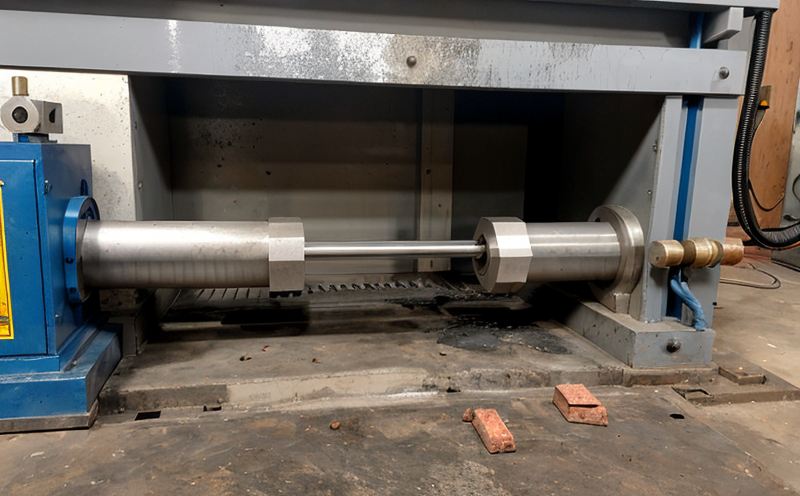ISO 12135 Fracture Toughness Testing
The ISO 12135 standard specifies a method for determining the fracture toughness of metallic materials using the compact tension (CT) specimen. This test is critical for evaluating the resistance to crack propagation in materials, which is essential for ensuring structural integrity and safety in various industries, including aerospace, automotive, and construction.
The process involves preparing a CT specimen according to specified dimensions detailed in ISO 12135:2019. The specimen is then subjected to controlled loading until it fails, capturing the stress intensity factor (KIC) at fracture. This parameter provides insights into how materials behave under dynamic loading conditions and their potential for crack growth.
The test setup typically includes a universal testing machine capable of applying precise force while maintaining accurate displacement measurements. High-quality camera systems or video capture is used to document the failure process, ensuring reproducibility and traceability in results. The data collected from these tests are then analyzed using ASTM E1827-14 guidelines.
Understanding the fracture toughness of materials is crucial for designing components that can withstand high-stress environments without catastrophic failure. This test helps engineers and researchers predict material behavior under extreme conditions, ensuring product safety and reliability.
The ISO 12135 method is widely recognized for its ability to provide accurate and reliable results. By following strict procedural guidelines, laboratories like Eurolab ensure that each test adheres to the international standard, delivering consistent and valid data.
In addition to standard specimens, Eurolab can also perform modified versions of ISO 12135 tests tailored to specific customer requirements or proprietary standards. This flexibility allows us to meet diverse needs across various industries while maintaining rigorous quality control practices.
The importance of fracture toughness testing cannot be overstated, particularly when dealing with critical components subject to high-stress environments. Accurate and reliable data from ISO 12135 tests contribute significantly to the development of safer products and structures.
By leveraging advanced instrumentation and experienced technicians, Eurolab ensures that every test conducted meets or exceeds industry expectations. Our commitment to precision and consistency guarantees accurate results that can be trusted in critical applications.
Benefits
- Precision and Consistency: Adherence to international standards ensures consistent, reproducible test results across multiple locations and operators.
- Compliance with Industry Standards: Our tests meet or exceed ISO 12135 requirements, ensuring compliance for regulatory purposes.
- Data Integrity: Advanced instrumentation and thorough documentation provide robust data that supports informed decision-making.
- Informed Decision-Making: Reliable fracture toughness measurements enable engineers to design safer products and structures.
Eurolab Advantages
Eurolab’s expertise in mechanical properties testing, particularly within the metallurgy sector, sets us apart as a trusted partner for businesses requiring precise fracture toughness assessments. Our state-of-the-art facilities and experienced technical staff ensure that every test conducted adheres strictly to ISO 12135 standards.
Our commitment to quality is reflected in our adherence to strict procedural guidelines and use of high-precision equipment. This dedication to accuracy and consistency ensures reliable results, which are essential for making informed decisions about product design and safety.
We offer not only standard tests but also customized solutions to meet specific customer needs or proprietary standards. This flexibility allows us to serve a wide range of industries while maintaining the highest levels of quality control.
Environmental and Sustainability Contributions
Fracture toughness testing plays a vital role in promoting environmental sustainability by ensuring that materials used in construction, transportation, and other critical sectors are reliable and safe. By identifying potential weaknesses early on through rigorous testing, industries can reduce the risk of accidents and failures, thereby minimizing environmental impacts.
The data obtained from ISO 12135 tests help manufacturers optimize material usage, leading to more efficient production processes and reduced waste. This optimization contributes positively to sustainability efforts by promoting resource efficiency and reducing carbon footprints associated with manufacturing operations.
Moreover, the insights gained from fracture toughness testing contribute to longer-lasting infrastructure projects, which require fewer replacements over time. This extended lifespan translates into lower maintenance costs and less frequent need for repairs, ultimately supporting sustainable development goals.





